Introduction
Choosing the right mortgage is a crucial step in the home-buying process. With various mortgage types available, understanding the options and their implications can help you make an informed decision that aligns with your financial situation and long-term goals. This detailed guide will walk you through the different types of mortgages, their pros and cons, and key factors to consider when selecting the best mortgage for your needs.
Types of Mortgages
1. Fixed-Rate Mortgage:
*Definition: A fixed-rate mortgage has an interest rate that remains constant throughout the loan term, resulting in stable monthly payments.
*Pros:
– Predictable payments make budgeting easier.
– Protection against interest rate increases.
– Suitable for long-term planning if you plan to stay in the home for a long period.
*Cons:
– Higher initial interest rates compared to adjustable-rate mortgages.
– Less flexibility if interest rates drop significantly after you lock in your rate.
2. Adjustable-Rate Mortgage (ARM)
*Definition: An adjustable-rate mortgage has an interest rate that changes periodically based on an index, which reflects the cost to the lender of borrowing on the credit markets.
*Pros:
– Lower initial interest rates compared to fixed-rate mortgages.
– Potential to benefit from decreasing interest rates.
*Cons:
– Payments can increase significantly over time if interest rates rise.
– Uncertainty makes long-term financial planning more challenging.
3. Interest-Only Mortgage:
*Definition: With an interest-only mortgage, you only pay the interest for a specified period, usually 5 to 10 years. After this period, you start paying both principal and interest.
*Pros:
– Lower initial monthly payments.
– More cash flow flexibility during the interest-only period.
*Cons:
– Payments will increase substantially after the interest-only period ends.
– You are not building equity in the property during the interest-only period.
4. FHA Loan
*Definition: Federal Housing Administration (FHA) loans are government-backed mortgages designed to help first-time homebuyers or those with less-than-perfect credit.
*Pros:
– Lower down payment requirements (as low as 3.5%).
– More lenient credit requirements.
*Cons:
– Mandatory mortgage insurance premiums.
– Loan limits may be lower than conventional loans.
5. VA Loan
*Definition: VA loans are mortgage loans guaranteed by the U.S. Department of Veterans Affairs for military veterans, active service members, and certain members of the National Guard and Reserves.
*Pros:
– No down payment required.
– No private mortgage insurance (PMI) needed.
– Competitive interest rates.
*Cons:
– Limited to eligible veterans and service members.
– Funding fee required unless exempt.
6. Jumbo Loan
*Definition: Jumbo loans exceed the conforming loan limits set by the Federal Housing Finance Agency (FHFA). They are used for high-value properties.
*Pros:
– Allows borrowing for expensive properties.
– Flexible terms and loan amounts.
*Cons:
– Stricter credit requirements.
– Higher interest rates and larger down payments.
Key Factors to Consider
1. Financial Situation:
*Income and Expenses: Assess your current and projected income, monthly expenses, and overall financial health. Ensure you can comfortably afford the mortgage payments along with other financial commitments.
*Credit Score: Your credit score affects the interest rate and terms you qualify for. Higher scores typically lead to better rates. Obtain your credit report and address any issues before applying.
2. Loan Term
*Short-Term vs. Long-Term: Mortgage terms typically range from 10 to 30 years. Shorter terms mean higher monthly payments but lower overall interest costs. Longer terms offer lower monthly payments but higher total interest paid.
3. Down Payment
*Amount: A larger down payment reduces the loan amount, lowers monthly payments, and may qualify you for better interest rates. However, ensure you don’t deplete your savings entirely.
*Programs: Explore programs offering low down payment options, such as FHA, VA, or conventional loans with Private Mortgage Insurance (PMI).
4. Interest Rates and Fees
*Interest Rates: Compare interest rates from different lenders. Even a slight difference can significantly impact your total repayment over the loan term.
*Fees: Account for closing costs, application fees, and any other associated charges. These can add up and affect your overall mortgage affordability.
5. Flexibility and Future Plans
*Stability: If you plan to stay in the home long-term, a fixed-rate mortgage may be more suitable. For short-term plans or expected changes in income, an ARM might be beneficial.
*Repayment Options: Consider whether the mortgage allows for additional payments or early repayment without penalties, offering flexibility in managing your finances.
Conclusion
Selecting the right mortgage requires careful consideration of your financial situation, long-term goals, and the specifics of each mortgage type. By understanding the pros and cons of different mortgages and evaluating key factors, you can make an informed decision that best suits your needs.
At Northstar Home Finance Company, we are committed to helping you navigate the mortgage process, offering expert guidance and tailored solutions to ensure you find the perfect mortgage for your home-buying journey.



